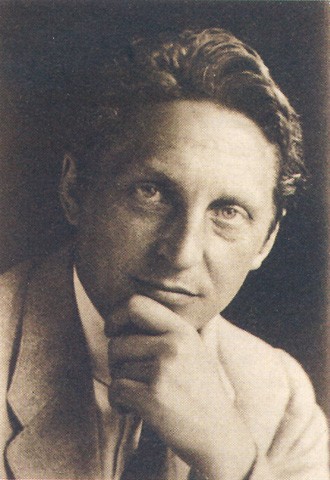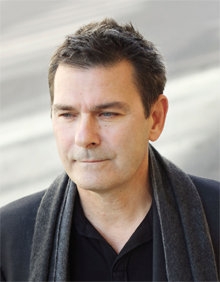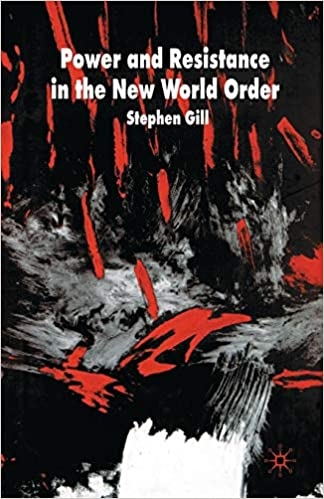Translated and edited by Joseph D. Pryce
 The enduring fame of German psychotherapist Hans Prinzhorn (1886–1933) is based almost entirely upon one book, Bildnerei der Geisteskranken (Artistry of the mentally ill), that brilliant and quite unprecedented monograph on the artistic productions of the mentally ill, which appeared in 1922. Sadly, it is too often forgotten that Hans Prinzhorn was the most brilliant and independent disciple of Germany’s greatest 20th-Century philosopher, Ludwig Klages (1872–1956).
The enduring fame of German psychotherapist Hans Prinzhorn (1886–1933) is based almost entirely upon one book, Bildnerei der Geisteskranken (Artistry of the mentally ill), that brilliant and quite unprecedented monograph on the artistic productions of the mentally ill, which appeared in 1922. Sadly, it is too often forgotten that Hans Prinzhorn was the most brilliant and independent disciple of Germany’s greatest 20th-Century philosopher, Ludwig Klages (1872–1956).
Although Prinzhorn himself would have protested against the oblivion into which his mentor’s life’s work has fallen, it is a fact that Prinzhorn is still a major presence in the technical literature, whilst his hero, paradoxically, has been “killed by silence.” One should be thankful for even the smallest mercies.
Prinzhorn is even now a not inconsiderable presence in the field that he made his own, and he will remain a major figure, albeit a controversial one, in the field of psychology, as long as his discoveries are cherished and his insights developed as a living heritage by those who recognize, and are willing to repay, at least some small portion of the debt that scholarship still owes to his memory.
Humanitarian Demagogues, Egalitarian Rabble. Whether today’s mechanistic and atomistic experiments with human beings originated in the Orient or in the Occident, the result is always the same: the tyranny of a clique in the name of the equality of all. And it is from this very tendency that the fantastic pipe dream of human individuals being reduced to the status of mere numbers arises. This wishful thinking is a symptom of the nihilistic Will to Power that conceals its true nature behind the cloak of such humanitarian ideals as humility, solicitude for the weak, the awakening of the oppressed masses, the plans for universal happiness, and the fever-swamp vision of perpetual progress. All of these lunatic projects invariably result in a demagogic assault on the part of the inferior rabble against the nobler type of human being. These mad projects, it need hardly be said, are always concocted in the name of “humanity,” in spite of the fact that decades earlier Nietzsche had conclusively demonstrated that it was the ressentiment, or “life-envy,” of those who feel themselves to be oppressed by fate that was at the root of all such tendencies. Indeed, it is even now quite difficult for the select few who have no wish to enroll themselves among the oppressed mob to understand the realities of their situation!
The Goals of Socialism. When we set our goals in the direction of socialism, whether in the sphere of politics, of welfare work, or of the ideal community, the fanaticism that inspires the socialist is customarily tinged with Christianity. Thus the socialist urges the citizen to progress from wicked egoism to a more social attitude. Even when we ignore the social, religious, or political nature of the ideologue’s desiderata, there is one positive aspect to this development, for socialism at least directs our attention away from the tyrannical ego and towards the world that surrounds us, thus calling upon the only one of socialism’s fundamental motives that we can regard as positive and biologically sensible.
Characterological Truth vs. Psychoanalytical Error. The most extensive, pleasant, and (one might even say) amusing effects wrought by the application of the psychoanalytic treatment depended on the fact that the most wretched and feeble blockhead was now able to convince himself that he was equal to Goethe in that the instincts that played so decisive a role in the cretin’s development were identical with those that were operative in the case of Goethe, and it was only a malicious practical joke on the part of Destiny that permitted Goethe to find in poetry a congenial sublimation of his sexuality.
The Psychopath and the Revolution. We can hold out no hope whatever for the successful creation of the sort of community that is constructed by ideologists on the basis of purely rational considerations, for the projects that are hatched out in the mind of the rationalist are most definitely not analogous to the development of living forms in nature, no matter how often the contrary position has been proclaimed by false prophets. Thus, the delusive hopes that are cherished for the successful implementation of the simple-minded schemes of our socialist and humanitarian ideologists must fail in the future as they have always failed in the past. The only tangible result of these schemes has been to intoxicate the isolated psychopath with an egalitarian frenzy, from which his tormented ego awakens, more desperate than ever, in order to plunge once again, with ever-increasing violence, into his political ecstasies, into bellowing his eulogies to those nameless “masses” who are so dear to the ideologue that he has appointed them to be the sole beneficiaries of his activism, now that he has been made sufficiently mad by a nebulous and insatiable longing for “liberation.” But the “sham” anonymity, which functions effectively as the cloak for politicians who pretend to act in the name of “the masses,” can only benefit clever, robust, and willful politicians, such as those who rule the Soviet Union; the real psychopath, on the other hand, who often possesses a taste for novel sensations and who, perhaps, may also be seeking personal publicity, will never be able to conform to the prescriptions of such an icy, strict self-discipline. As a result, he “breaks out,” and is soon overwhelmed by calamities from which he thinks he can only escape by resorting to even more violent attempts to achieve “liberation.” From the standpoint of psychology, the history of revolutions is very helpful to those who wish to increase their understanding of the “everyday” behavior—as well as the political actions—of his fellow human beings, not least to the physician who seeks enlightenment as to the nature of the motivations that drive men to perform violent deeds in situations to which they lend the halo of freedom, equality, and fraternity.
Heredity as Destiny (and Tabula Rasa as Sheer Nonsense). The life-curve of an individual’s development is a single event, which arrays itself along the lines of irrevocable changes. Strictly speaking, therefore, every occurrence, no matter how insignificant, involves an irrevocable change: in life nothing can be reversed, nothing repudiated, nothing ventured without an attendant responsibility, nothing can be annihilated: that formula constitutes the biological basis of destiny. Just as the individual must accept his biological heritage as a whole, whether he likes it or not, in precisely the same fashion must he accept the pre-ordained pattern of obscure rhythms transpiring within him.
Today we have become tragically unconcerned with our biological destiny, to say nothing of the fact that we refuse to feel the slightest reverence to the sphere of life, to which we owe everything. …That very attitude accounts for the success that has greeted the claims advanced by Alfred Adler and his followers, who advance the dogma that the hitherto customary views on heredity are fundamentally false, since man is born as a tabula rasa whereon his environment makes impressions that, by means of education, one can direct at will, and according to the capacity of that will, toward any desired goal. Adler compounds his felony by claiming that there is no such thing as inborn talent or traits of disposition. …
It would be impossible to reject the principles of biological theory more absolutely than Adler and his cohorts have done. Even that which we understand by the old, almost obsolescent name of “temperament”—that which represents the sum-total of the somatically connected, permanent tendencies of an individual—even this link between the purely psychological and the purely somatic view is repudiated by Adler in his grotesquely teleological and hyper-rationalist construction. … Since there is no biological basis whatsoever for his stupendous assertions, one must seek for such a basis in another sphere, viz., the author’s ideology. Sure enough, we learn that Adler is a fanatical believer in the coming Utopia of socialism, and, as we all recognize, no Utopia can prosper until a faceless equality of disposition has been forced upon every individual by the ideological zealots who will run the show. Therefore I denounce the politically tendentious World-View that Adler and his apostles put forward as “science,” for it is a perfect example of nihilism passing itself off as scholarship, and no cloak of pedantic and prudent caution can hide the fact.
Genetic Endowment and Environmental Conditioning. Upon his entry into individual existence, the human being’s development as a psychosomatic creature is determined as regards substance, capacity for expansion, and direction, in the first place by his genetic endowment as a whole; in the second place by his pre-natal environment; and lastly by the circumstances of his birth. That almost all the active factors rise and fall in varying phases, makes a rational interpretation and estimate of the state of things at any given moment impossible in the strictest sense of that word.
But the fact that such an admission of the difficulties that arise due to methodological limitations is exploited by false prophets in order to deceive the world as to the real nature of biological facts—usually in order to breathe some life into the defunct heresy of the infant born as a tabula rasa—is either a sad indication of their childish mentality or additional evidence that they are indulging their ideological proclivities in the wrong place. What Goethe described as “the law under which you entered the world,” what Kant, Schopenhauer, and others called the “intelligible character,” is the first unavoidable actuality that we must accept as the destiny of our being, and as the starting-point of all investigation and thinking that relates to the human being. All experience and all reasonable thinking drives us back to this basic fact.
The Occidental Observer, August 8, 2010, http://www.theoccidentalobserver.net/authors/Pryce-Prinzhorn.html
Joseph Pryce (email him) is a writer and poet and translator from New York. He is author of the collection of mystical poems Mansions of Irkalla, reviewed here. His translation of the German philosopher Ludwig Klages’ work will be published shortly.







 del.icio.us
del.icio.us
 Digg
Digg